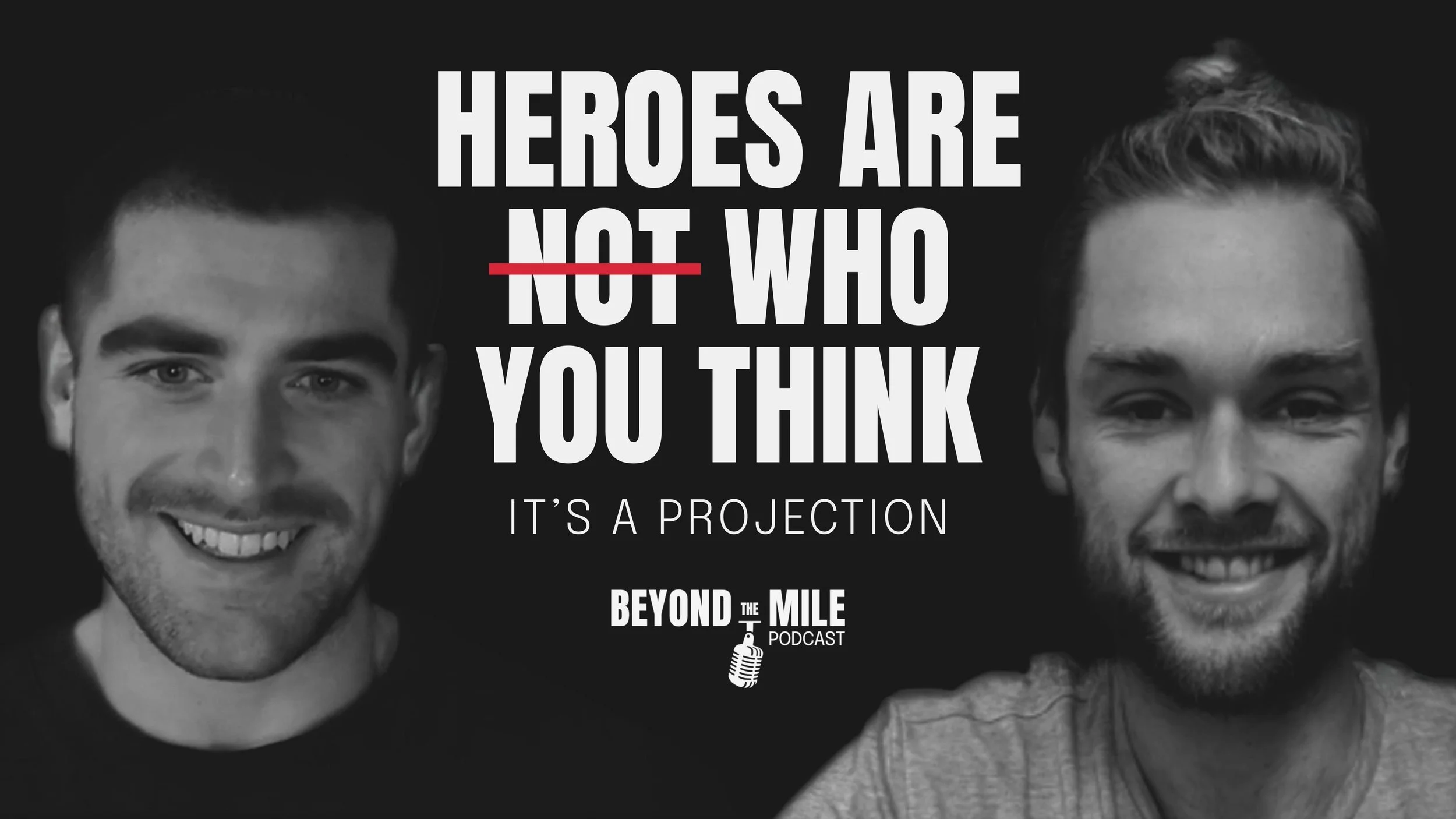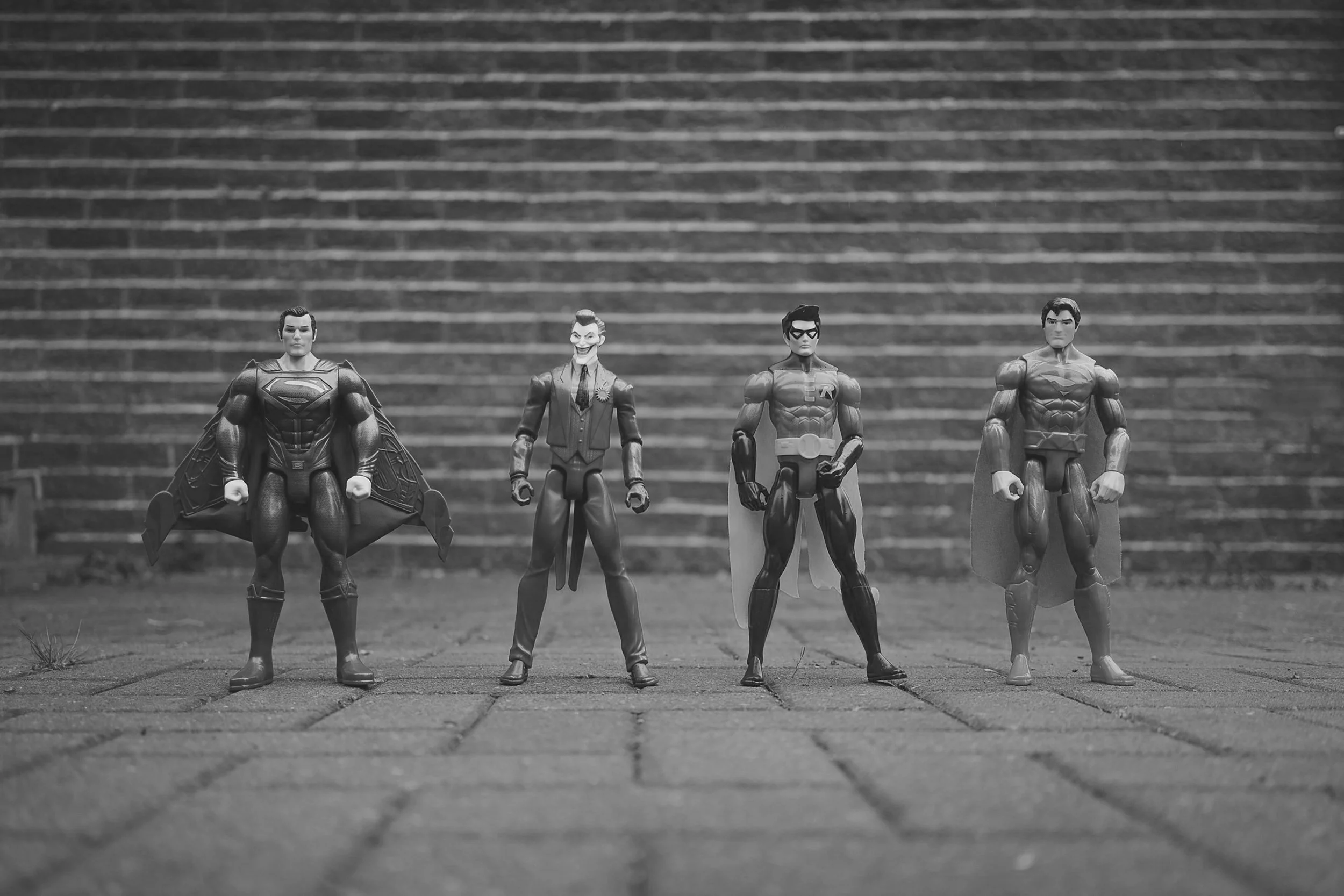The Evolving Role of Masculinity – A Conversation Worth Having
In the first episode of Beyond the Mile Podcast, I sit down with James Yates, a therapist specialising in men’s mental health, to dig into a topic that’s been on my mind for a while—the evolving role of masculinity. It’s a conversation that feels both important and, at times, a bit daunting. There’s a fine line between discussing men’s issues in a meaningful way and getting sucked into the polarising culture war that so often surrounds it. But the reality is, men are struggling. We see it in rising mental health issues, increasing rates of male suicide, and a general sense of confusion about what masculinity actually means today.
This isn’t about trying to reclaim the past or dismiss the progress that’s been made in gender equality. It’s about figuring out where men fit in this new landscape—one where traditional roles have shifted, but little guidance has been offered in their place.
Talking About Men’s Issues Isn’t a Threat to Progress
One of the first things James and I discussed is the way men’s issues are often dismissed, or worse, seen as an attack on feminism. There’s this strange idea that talking about the struggles men face somehow undermines the work done for gender equality. But as we explored in our conversation, that’s not the case. Acknowledging that men face unique challenges doesn’t mean we ignore the struggles of women—it just means we’re willing to look at the full picture.
“We have this new situation where things are very different now. The role of men has changed, but there isn’t much guidance on what that role should look like.”
Traditionally, men were expected to be providers and protectors. But with shifting societal norms, those expectations have changed—without a clear alternative being put in place. That’s left a lot of young men feeling lost, unsure of their purpose, and struggling with mental health in ways that often go unnoticed.
We’re not here to play into the extremes—the conservative take that we need to ‘man up’ and return to traditional masculinity, or the progressive stance that men’s issues aren’t worth discussing at all. The reality is, most men are stuck somewhere in the middle, trying to figure out where they fit in a rapidly changing world.
Our Own Journeys with Masculinity
James and I didn’t just speak in abstract terms—we both shared personal experiences of grappling with our own identities as men.
James opened up about his childhood, growing up with an ill mother and spending a lot of time alone. That isolation shaped him in ways he didn’t fully understand until later in life. As a teenager, he tried to ‘fix’ his struggles with self-esteem by losing weight, thinking that external change would solve the internal issues. It didn’t. What actually helped? Therapy.
“I actually really enjoyed therapy in a weird way. It was like peeling back layers of an onion, discovering things about myself that I didn’t even realise were there.”
That journey ultimately led him to become a therapist himself, working with men who are facing the same kind of internal battles.
For me, my relationship with masculinity has often been tied to pushing myself—whether that’s in work, sport, or just about any challenge I take on. If I’m interested in something, I don’t just do it—I go all in. CrossFit? Ultra-marathons? Building a startup? I throw myself at it. But at times, that relentless pursuit of ‘more’ has had its downsides.
I also shared my own struggles with weight and body image as a teenager. The fastest way to lose weight? Stop eating. It worked—but at a cost. Looking back, I can see how easy it is for men to develop unhealthy relationships with their bodies, especially when no one really talks about it.
These personal experiences are exactly why this conversation matters. Masculinity isn’t just some abstract societal construct—it’s something we live and navigate every day, in ways that can either empower us or hold us back.
What Actually Defines Masculinity?
One of the biggest takeaways from this conversation was how difficult it is to even define masculinity. What traits make a man ‘masculine’? Strength? Leadership? Courage? And what happens when those traits are taken too far?
“You can’t be a good leader without empathy. You can’t be truly strong without courage. But masculinity, in its healthiest form, is about responsibility and self-awareness.”
James introduced the King, Warrior, Magician, Lover framework, which explores different aspects of masculinity. He made the point that when masculinity is either repressed entirely or expressed in an unhealthy way, problems arise.
The key takeaway? Masculinity isn’t inherently ‘good’ or ‘toxic’—it all comes down to how it’s expressed. And labelling masculinity as ‘toxic’ without nuance isn’t just unhelpful—it’s damaging, especially for younger men trying to navigate their identities.
Where Do Men Stand in Modern Society?
Beyond personal experiences, we also explored some of the bigger societal changes impacting men today. A few key points stood out:
• Workforce participation among men aged 25-55 is dropping.
• Men are falling behind in education, with fewer enrolling in university.
• Suicide rates among men remain significantly higher than among women.
One of the most striking issues is how work has changed. There’s been a massive (and necessary) push to get women into STEM careers, but we haven’t seen the same effort to encourage men into HEAL (Health, Education, Administration, and Literacy) fields—sectors that are growing rapidly but remain heavily female-dominated.
“We’ve done great work in opening doors for women in STEM. But when it comes to men in HEAL fields, we haven’t made the same effort. And that’s a problem.”
It’s not just about work, though. The lack of male role models in teaching and therapy also means young boys and men often don’t have mentors they can relate to in key areas of their lives.
Moving the Conversation Forward
So where do we go from here? How do we move beyond outdated ideas of masculinity while still giving men a sense of purpose and direction? The answer isn’t in returning to the past, but it’s also not in ignoring men’s struggles.
“It’s not about going back to the past, and it’s not about dismissing men’s struggles. It’s about finding a new path forward—one that allows men to redefine their role in a way that’s healthy, balanced, and fulfilling.”
That’s exactly what we’re trying to do with Beyond the Mile. This isn’t about finding a single ‘solution’—it’s about opening up a space where we can actually talk about this stuff without judgement or agenda.
This conversation is just getting started.
Final Thoughts
Episode 1 set the foundation for what we hope will be an ongoing exploration into masculinity, mental health, and personal growth. By combining personal experiences with broader social issues, James and I aimed to bring some much-needed nuance to a topic that’s often either ignored or oversimplified.
If you’re reading this and feel like some of what we’ve talked about resonates, then you’re exactly who this is for.
Let’s keep this conversation going - Subscribe Here.


